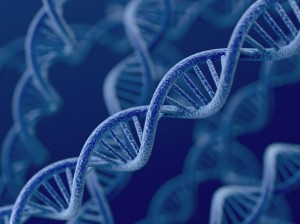Empowering the Black Community through Science, One Church at a Time

It’s a cringe-worthy phrase many skeptics have heard: “I don’t believe in science.”
Our faces drop. Our eyes roll. We let out a deep sigh. It’s an all too common sentiment in our majority Christian society, which frequently finds itself at odds with facts. This distrust in science is especially pronounced in the Black community.
Many reasons abound for Black Americans to be wary of research findings—especially in medical research—not least of which include well-known atrocities like the Tuskegee syphilis experiment and forced sterilizations. These are stark reminders of how racism is shored up via the supposedly neutral and unbiased world of scientific inquiry. However, no matter how hard one might try to avoid it, the wheels of progress roll on, and the Black community finds itself facing ever increasing moral and spiritual dilemmas because of the clash between Christianity and advancements in human understanding.
One such advancement is “gene editing.” It’s controversial, to say the least. Gene editing, also known as genomic editing and germline editing, is a process by which biologists are able to literally change aspects of a subject’s DNA. This process is not to be confused with gene therapy. Gene therapy involves inserting genetic material into cells to correct faulty genes. Gene therapy is currently being used to treat any number of illnesses and disorders, including diseases such as cancer. These changes are made only in the cells of the person being treated and are not passed on to offspring. Gene editing, however, involves making changes directly to the DNA of cells or embryos, thereby inserting heritable traits into the newly edited genome. Some religious communities might see this process as a means of “playing God.” Therein lies the conundrum facing Christians.
However, some scientists are trying to address this conflict between Christianity and science. In a recent PBS Newshour article on gene editing, journalist Andrew Joseph introduces the reader to Dr. Ting Wu, a professor and principal investigator in the Department of Genetics at Harvard Medical School. She has made it her quest to increase the public’s understanding of and comfort with genetics and related advancements, such as gene editing. To that end, Wu recently began working with Black churches and faith groups in educating the Black community. Although Wu, a nonbeliever herself, says she’s not trying to engage in advocacy work, she’s not blind to the barriers she faces “Wu believes people should know what scientific advances mean for them,” writes Joseph. “The challenge is empowering communities that are skeptical of science because they have been underserved or even mistreated in the past.”
Unfortunately, historical medical abuses and attempts to prove the inferiority of Black people through such investigations are only part of the problem. Joseph highlights faith-based concerns: “The pastors and congregation members asked whether genome-editing infringed on the belief that God made people in his image and whether by controlling genes, people were assuming a power that only God should have.” Are scientists crossing sacred lines and playing God? Are they entering a space in human existence that is to be occupied only by a divine creator? Some Christians point to Bible verses that seem to speak to these anxieties:
“So God created man in his own image, in the image of God created he him; male and female created he them.” (Genesis 1:27)
“And God saw everything that he had made, and, behold, it was very good.” (Genesis 1:31)
If God created humankind to be like him and he was happy with the results, who are a bunch of scientists to feel bold enough to move in on God’s domain? To Christians, such brazenness exists because people don’t fear God. They don’t revere him. They don’t believe in him. If they did, they would never seek to change his “work” through the development of a human embryo or by making to changes to the human genome.
The Pew Research Center found that “people with high religious commitment are more likely to say gene editing is morally unacceptable” and that “a majority of people with high religious commitment (64 percent) say they would not want gene editing for their own baby,” not even to reduce the risk of serious diseases and illnesses. And this lack of acceptance is the very reason that Wu’s efforts are so crucial. For example, scientists have made unbelievable strides toward using gene editing to tackle HIV, including having used the technique to successfully eliminate HIV genes from mice and rats. As Black Americans suffer from higher rates of ailments such as cardiovascular diseases and cancer, ignoring and dismissing scientific advances that have the potential to alleviate so much pain and suffering is to the incalculable detriment of the Black community.
Undeniably, researchers, scientists, and bioethicists have a long way to go before the medical world can start making changes to the human genome. Considerations about unintended long-term consequences for the offspring of someone who experienced genomic editing or questions about parents attempting to make “designer babies” are not to be trivialized. We must grapple with these questions before society as a whole will accept this new technology. And the road to acceptance is even longer for the Black community. The only way to overcome distrust is to provide more information, more proof, more evidence. That’s why it is imperative that the Black community (indeed America as a whole) become more scientifically literate. But most importantly, researchers and scholars must find ways to heal the historical wounds from abuses inflicted under the guise of scientific endeavors while the people themselves must challenge antagonistic attitudes toward science that are so ubiquitous within some Christian traditions.
This must happen now, lest we raise another generation who blindly and lazily declare, “I don’t believe in science.”
